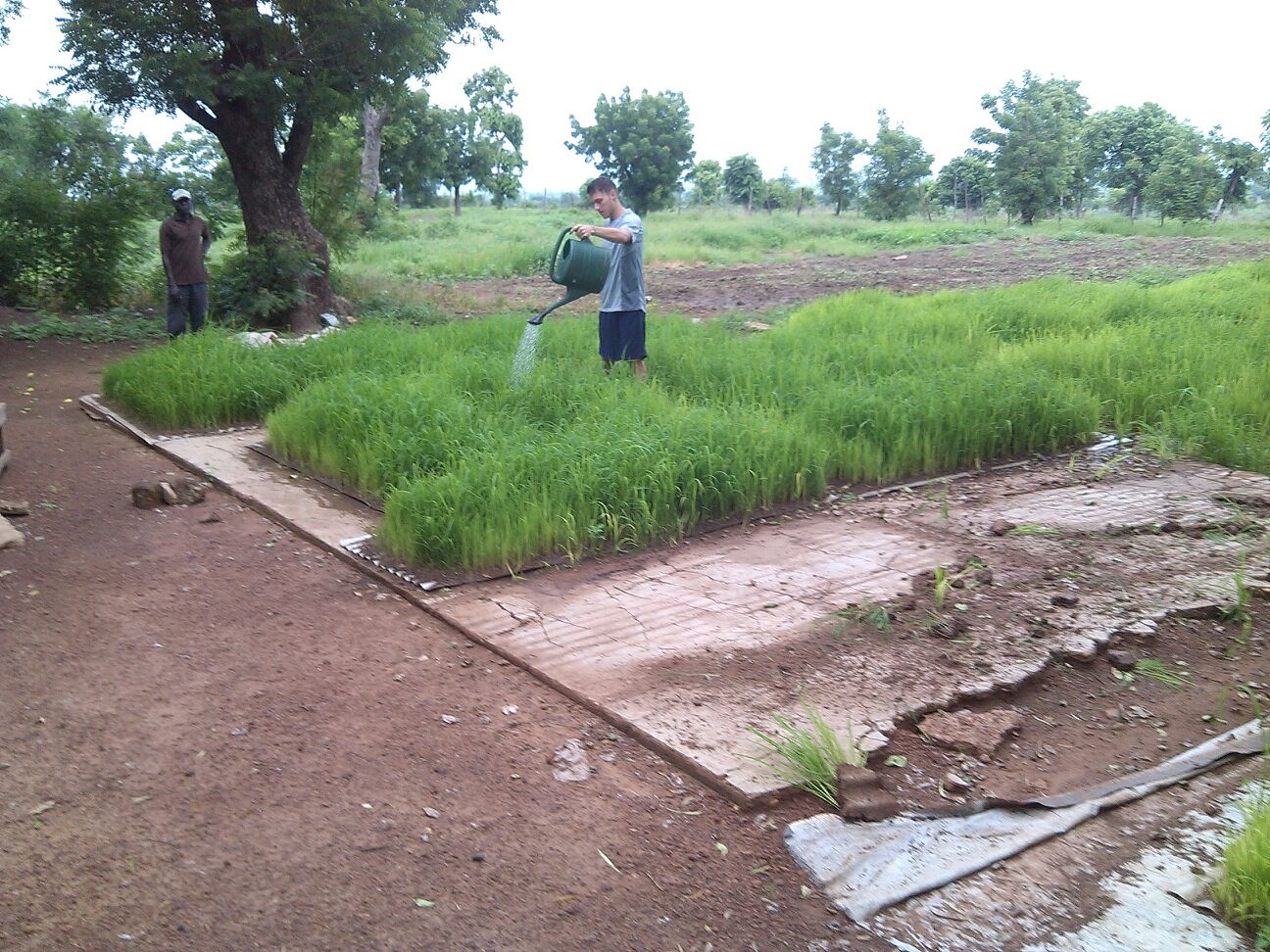Engineering Without Borders member Maxime Desharnais is making a world of a difference in Ghana
The first time that Maxime Desharnais, a civil engineering student at Concordia, walked on the 1,000 acre rice field in the village of Nabogo in Ghana last May, he found a snake.

Anyone in the village will tell you that if you find a snake on the field on your first day, “your field is going to be a success,” Desharnais said.
Months later, while many farmers in the region were losing their crops due to drought, Desharnais’ 17-acre test field was just that—a success. However, this probably has little to do with the snake and a lot to do with the use of the System of Rice Intensification (SRI).
Desharnais spent four months in Ghana last summer as part of the Junior Fellowship program offered by the organization Engineers Without Borders.
“I wanted to work on the field. I wanted to get my hands dirty,” Desharnais said. “That was my goal and I got exactly what I wanted.”
The program organizers put him in contact with Miles Adongo, a young man looking to improve the way his village farmed rice. The SRI has farmers nurse the seeds, plant them systematically, and use irrigation, which controls water flow to foster plant growth. The process uses 80 to 90 per cent less seeds than the conventional technique, and nursing the plants makes them stronger.
Although other Western African countries are currently using SRI, no one in Ghana has proven that it’s “commercially viable” yet, said Desharnais. That’s where Adongo and his farm come in.
“Everything we’re doing is for the community,” Desharnais said, adding that Adongo’s plans involve promoting the involvement of women in farming practices.
“The ultimate goal is processing our own rice for Ghana,” Desharnais said. The country currently has to import most of its rice, Desharnais said.

Now that Desharnais is back in Canada, it’s all about funding for the project. He is essentially the liaison between Canadian companies and Adongo’s farm.
“I heard numerous times [from people] ‘can I trust him?’ or ‘is he going to scam us?’” Desharnais said. His focus has been on breaking these misconceptions about funding African projects.
The project recently received funding from a large North American company and next summer Desharnais will be going back to Nabogo to follow-up on where the money is going and how it has affected the field.
“Next year, it’s going to be different,” Desharnais said. The plan is to increase the test field from 17 acres to 80 acres. According to Adongo, the field’s persistence through the recent droughts has given many villagers confidence about SRI.
“They’re scared to change the practice because it’s their subsistence,” Desharnais said, adding that, “[Growing rice] a big struggle with the weather.”
The hot sun already limits the length of the farming season because the soil becomes too dry, Desharnais said. When there is water, it’s rain-fed and in abundance, sometimes too much for the tractors to handle.
The solution is irrigation, but for now the project can’t afford it. Desharnais has no doubt that it’s in the farm’s future, though.
At Concordia, his hydraulics class was recently learning about irrigation channels. “When I’m in class, I’m thinking about how I could apply that on the field,” he said.
You can learn more about Miles Adongo and his projects at kumvana.ewb.ca/portfolio/miles-adongo.



